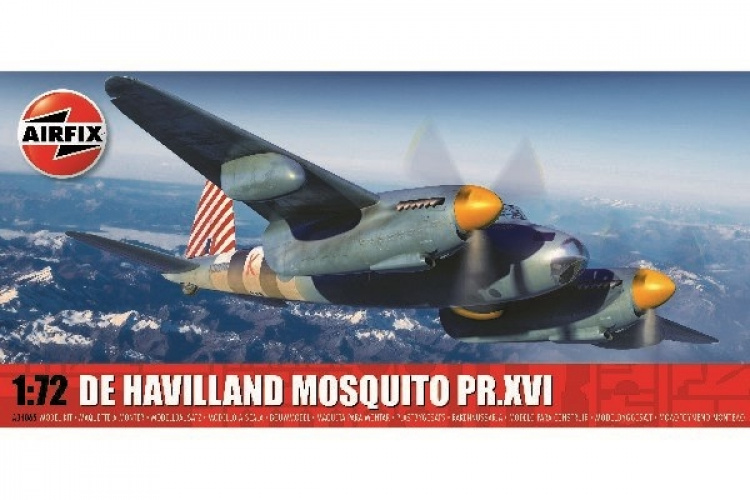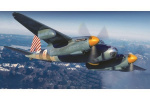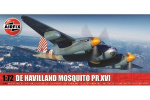Without a doubt, the Mosquito"s greatest attribute was its speed and even though it was developed as a high-speed, unarmed bomber, the sheer fact it could outpace fighter aircraft of the day made it an attractive proposition to those in the military charged with obtaining photographic intelligence of potential enemy targets.
It is interesting to note that the second Mosquito prototype aircraft to begin construction was a photo reconnaissance variant and indeed, the first Mosquito to be taken on charge by the RAF was a PR Mosquito, so vital was this work to the British war effort.
The months prior to the D-Day landings saw the introduction of the upgraded Mosquito PR Mk.XVI variant, an aircraft which was the most effective photo reconnaissance aircraft in the skies at that time. Able to fly higher, faster and for longer, these latest reconnaissance Mosquitoes could go anywhere and see everything and the Germans hated them.
Specialist Luftwaffe units were established specifically to challenge Mosquito reconnaissance incursions, however, it wasn"t until the introduction of rocket and jet-powered aircraft that they had much hope of success. Even then, Mosquito crews were well-versed in evading interception and continued to bring home their vital tactical imagery.vvvvvvvvvvvvvvv









